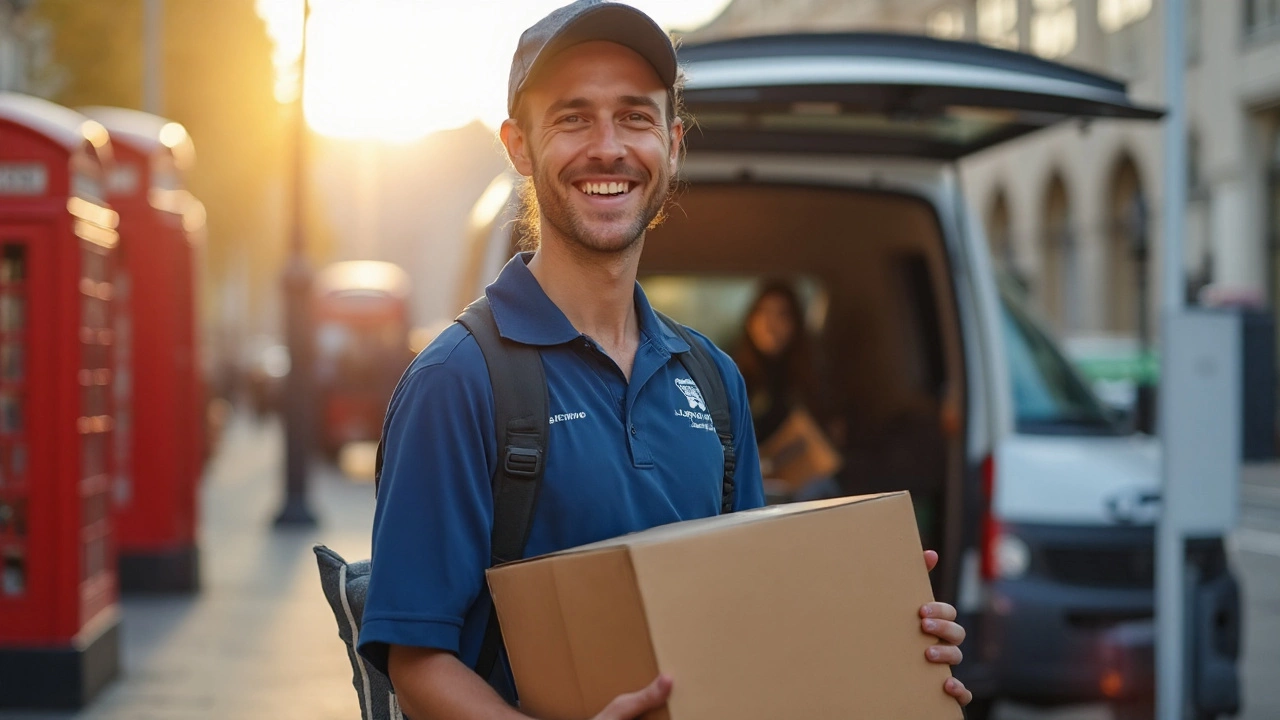Picture yourself spending most of your week with a team that hauls, sorts, ships, and delivers almost everything the world needs. From that sushi kit you just bought online, to the sneakers your kid Quentin can’t wait to unbox, logistics companies are the unsung heroes making it all look easy. But there’s a catch—behind those perfect deliveries and on-time arrivals are real people grinding it out. So, when thinking about where to clock in next, the question becomes: Which logistics company actually treats their staff right and gives you room to grow, learn, and maybe even have some fun? Let’s break it down for anyone hunting not just for any job, but the best place to work in logistics—without the corporate sales pitch.
What Makes a Logistics Company the “Best” to Work For?
Okay, “best” is a big word and everyone’s got their own version. Maybe you want stability and benefits because you’re supporting a family. Maybe you want a chance to move up, or you’re in it for the cool tech and problem-solving. To really figure out who ranks at the top, we have to size up what matters most to real employees these days.
First off, pay is still king for a reason. In 2024, median pay for logistics staff in the US was $61,180 according to the Bureau of Labor Statistics—that’s nearly $30 an hour, but the spread is wide depending on the company and the role. Some companies toss in hefty sign-on bonuses or yearly incentives, which can help a ton if you’re living somewhere with sky-high rent or planning for college tuition (or let’s be real: summer camp fees that make you do a double-take).
But it’s not all about money. Top-rated companies also get high marks for work-life balance—think flexible schedules, remote options for office workers, generous paid time off, and even support for parents or caregivers. If you’ve ever tried to juggle a full-time gig while your kid’s got a 3pm soccer game, you know why this matters.
Health, wellness, and safety programs count too. The big names in logistics—like UPS, FedEx, DHL, and C.H. Robinson—have beefed up their safety measures after a crazy few years, when drivers and warehouse staff worked straight through pandemic lockdowns. They’ve added everything from mental health helplines to ergonomic gear to slick break rooms (though my dream is still a nap pod next to the vending machines... a guy can wish, right?).
Growth and training rank near the top. Want to get into management, try your hand at new tech, or just learn on the job? The companies people rave about invest a lot in training. UPS famously promotes from within—more than 50% of its management team started as hourly employees. FedEx and Amazon have big internal training platforms, and DHL has solid programs for both entry-level staff and rising managers.
Plus, work culture really shouldn’t be overlooked. Companies making the "best of" lists—think C.H. Robinson, XPO, and Echo Global Logistics—tend to get high scores for team vibes, communication, and making folks feel like more than a cog in the machine. If you wake up looking forward to seeing your crew, they’re probably doing something right.
The Heavy Hitters: Who’s Leading the Pack?
The same few companies pop up again and again on lists from Glassdoor, Indeed, and Forbes, mixed in with some fresh new names. Each has a slightly different flavor, so it’s not one-size-fits-all.
UPS feels almost like an institution at this point—founded in 1907, still going strong, and it’s one of the largest private employers in America. People rave about the pay for union drivers and the benefits package, which covers health, dental, and a killer retirement plan. UPS also scores big for promoting from within. But, just as honestly, it’s not the right pick if you want an easy shift; the pace is intense, especially during peak seasons, and drivers often log long hours.
FedEx is another classic—often voted as one of the World’s Most Admired Companies by Fortune. Culture gets a shoutout here; people tend to mention supportive management and a strong sense of teamwork. Given FedEx’s size, you’ll find opportunities almost everywhere, from logistics to IT to sales.
DHL Express is shockingly global—220-plus countries, slick yellow trucks in every major city, and a real focus on employee development. DHL employees get leadership programs and international job options. Plus, they top a bunch of “World’s Best Workplaces” lists. Pay can vary a lot onsite, but the global vibe appeals to people who like diversity in their team and a more open culture.
Amazon is hard to ignore, as much as some folks love to hate it. It has massive logistics operations—the Amazon Transportation Services wing alone has over 200,000 employees. Wages have climbed (starting pay for US warehouse staff in 2025 is up to $19 an hour), and there’s lots of upward mobility. The pace is infamously tough, though, and work-life balance reviews are all over the map. Still, Amazon invests tons in training and advanced tech; if you’re tech-curious, it’s worth a look.
Finally, there’s C.H. Robinson, the world’s largest third-party logistics provider. Their edge? Office jobs, hybrid and remote opportunities, huge investments in digital platforms, and big bonuses for top sales staff. C.H. Robinson is consistently named a best place to work for women, tech professionals, and parents, and managers are often promoted from within. If you’re ready to swap steel-toed boots for business casual, this company’s culture tends to be upbeat and welcoming.
Here’s a snapshot of how these stars compare in a few key areas:
| Company | US Headquarters | Employee Count (2025) | Median Hourly Pay* | Key Benefit | Average Glassdoor Score |
|---|---|---|---|---|---|
| UPS | Atlanta, GA | 537,000 | $32 | Pension & Promotion | 3.7/5 |
| FedEx | Memphis, TN | 530,000 | $25 | Teamwork & Culture | 3.8/5 |
| DHL | Plantation, FL (US) | 380,000 | $23 | Global Mobility | 4.1/5 |
| Amazon Logistics | Seattle, WA | 200,000+ | $19 | Training & Tech | 3.5/5 |
| C.H. Robinson | Eden Prairie, MN | 15,000 | $27 | Remote/Hybrid | 4.0/5 |
*Pay data gathered from Indeed, Glassdoor, and company reports, updated for 2025.

Perks, Challenges, and What Real Employees Say
So, what do folks on the inside actually talk about? You can read through a hundred reviews and see the same words pop up: support, pressure, opportunity, teamwork, and stress. Take a quick peek at any top-reviewed logistics company on Glassdoor, and you’ll see not just glowing notes on benefits, but also some warts-and-all honesty about long days and difficult customers.
For instance, at UPS, people put a spotlight on the generous pension plan and good union protection. They groan about physically demanding work (“lots of moving and lifting” is a common refrain), but many say the camaraderie makes up for the sweat. One driver wrote, “It’s tough, but there’s pride in what we do—and honestly, I couldn’t find this pay somewhere else without a degree.” UPS is especially good for those who want job security. During economic potholes in 2023 and 2024, they kept hiring when others froze up.
FedEx workers praise management and a strong feeling that you’re “part of the family,” but they also talk about busy shifts and unpredictable holidays. DHL is the standout for people who crave travel or want to try different roles in different countries—along with regular wellness programs and employee events. If you’ve got kids, it’s worth finding out if your location offers backup childcare or paid family leave, which is standard at larger hubs.
Amazon reviews vary wildly—some love the innovative atmosphere and sheer scale of the company, while others complain of tracking systems, constant performance reviews, and quotas. Still, Amazon’s Career Choice tuition repayment is a game-changer, letting you train for new careers (even outside logistics) on the company’s dime. If you’re hustling to earn a new credential while working long hours, that matters.
C.H. Robinson is often pegged as a “work hard, play hard” place—busy seasons get long, but there’s a lot of flexibility (especially for knowledge workers). Their wellness package stands out, as does the strong inclusion and diversity focus. A new dad in Minneapolis wrote, “HR actually worked with me on a custom schedule so I could do daycare drop-offs after Meredith’s maternity leave.” That kind of attention is rare, but it pops up in the best-rated companies.
- If you’re looking for advancement, UPS and C.H. Robinson are leaders—watch for their internal training programs.
- If you want flexible schedules, DHL and C.H. Robinson score highest, with more remote options now than ever.
- For those seeking stability, unionized employers like UPS are nearly unbeatable in the long game.
- If you want to get in early on new tech, Amazon and FedEx both pump serious money into automation, robotics, and AI-driven supply chain solutions.
- And for big benefits—health, retirement, tuition support—FedEx, UPS, and Amazon are almost neck-and-neck.
Tips for Getting Hired by the Best: How to Stand Out
If you’re sold on joining one of these logistics leaders, you have to know the game to get past the applicant pile. Here are some hard-won tips from recruiters and insiders I’ve talked to over the years.
- Customize your resume for the job. Companies scan for keywords, but they also spot skills like teamwork, reliability, and adaptability. Highlight those with specific stories (did you run a tricky route without missed deliveries? Did you implement a new workflow in your warehouse?).
- Show you know logistics basics, even for entry-level gigs. Free online courses cover supply chain lingo, inventory tracking, and safety. FedEx and DHL especially like to see a little prep work.
- Get an employee referral if you can. Trust me—an internal nudge makes your application jump the line at almost every major employer.
- For warehouse or driver roles, physical fitness counts. Amazon, UPS, and DHL all have basic lifting and stamina tests, so don’t fudge here; show up ready.
- Emphasize flexibility. If you’re OK with working weekends, shifting schedules, or training across departments, companies love to see that.
- Tech skills are a sweetener for office-based roles. C.H. Robinson and Amazon especially love candidates who know Excel, SAP, or route optimization tools.
- Be ready for behavior-based interviews. Prepare to talk about ways you’ve handled tough deadlines, difficult teammates, or stressful rush periods.
- Ask sales managers about advancement. UPS and C.H. Robinson both push hard workers up the ladder fast, but it pays to show them you want more than "just a job."
Bigger companies now use AI-driven screening, so don’t get creative with your job history: keep it clear and honest. Oh, and don’t skip your cover letter—real human stories still cut through a pile of resumes. Mention hobbies or community work (like when I coached Quentin’s youth baseball team—it actually came up in my interview for a logistics gig years ago).

The Future of Working in Logistics: Why It’s a Smart Bet
The logistics game isn’t slowing down anytime soon. Demand for quick deliveries, smart warehousing, and e-commerce is only getting crazier (online sales jumped 21% in 2024, International Data Corp says). Around 1.4 million people worked in transportation and logistics roles in the US last year, and that’s up nearly 80,000 jobs from the year before—almost all major logistics companies are hiring.
Automation is shaking things up, but it’s also creating new opportunities. Smart warehouses, AI-powered inventory systems, and delivery drones mean companies need tech-savvy staff and sharp thinkers. That’s why companies like Amazon, DHL, and FedEx keep launching learning platforms and career tracks for upskilling staff.
If hassle-free advancement is your thing, look for companies adding tuition programs, internships, or “frontline to management” training. Nearly every logistics employer now has career mobility paths—sometimes even letting employees switch locations across states or go remote entirely. Plus, green tech is in, so expect to see more electric vehicles, solar warehouses, and sustainability bonuses soon.
One thing that hasn’t changed: Logistics runs on people—crews that back each other up, troubleshoot every surprise, and make sure kids like Quentin never have to wait too long for their birthday presents from grandma.
The best logistics company for you depends on your goals, your energy, and your appetite for challenge. Some want high pay and generous benefits with a steady weekly rhythm. Others thrive on the buzz of giant tech, international teamwork, or hands-on leadership. Whatever you’re after, the standouts like UPS, FedEx, DHL, Amazon, and C.H. Robinson are good places to start. Funny how moving boxes—and connecting people worldwide—actually moves people’s lives, too.


